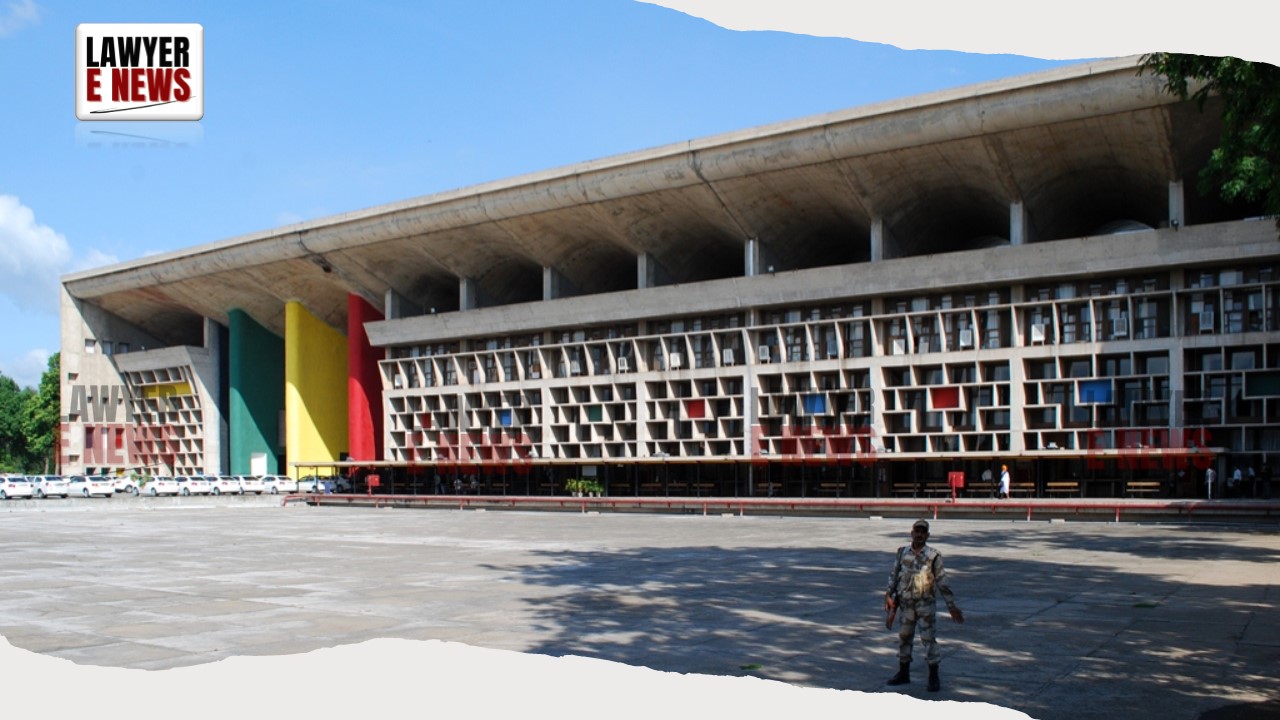-
by Admin
15 February 2026 5:35 AM



Father Is the Natural Guardian Under Section 6 of the Hindu Minority and Guardianship Act - Punjab and Haryana High Court has granted custody of a nine-year-old boy, Harmanveer Singh, to his biological father, Jaspreet Singh, while allowing visitation rights to the maternal grandparents. The Court, ruling on a habeas corpus petition, emphasized that the father, being the natural guardian under Section 6 of the Hindu Minority and Guardianship Act, 1956, is entitled to the custody of the child.
The judgment, delivered on December 20, 2024, by Justice Sandeep Moudgil, declared the custody of the child with his maternal grandparents as "illegal" and against the statutory framework, given that they do not fall under any legally recognized category of guardianship. The decision underscores the welfare of the child as the paramount consideration in custody disputes.
Natural Guardianship Under Section 6
The Court reaffirmed that under Section 6 of the Hindu Minority and Guardianship Act, 1956, the father is the natural guardian of a Hindu minor boy unless disqualified by law. It held:
"The father, being the natural guardian under the statute, is entitled to custody. The maternal grandparents, while well-intentioned, do not fall under the categories of natural, testamentary, or legal guardians as recognized by law."
Welfare of the Child is Paramount
Emphasizing the welfare principle, the Court noted that the child's mother, who has been living in Canada since 2021, showed no meaningful interest in the child's upbringing. Despite having completed her studies in January 2024, she neither returned to India nor participated in custody proceedings.
In contrast, the father demonstrated emotional readiness, financial stability, and a commitment to caring for the child. The Court observed:
"The absence of love and affection from both parents has adversely affected the child's welfare. The father is better placed to provide a stable and nurturing environment for the child."
Maintainability of Habeas Corpus Petition
The respondents argued that the petition was not maintainable as the petitioner had an alternative remedy under the Guardians and Wards Act, 1890. However, the Court held that habeas corpus was maintainable, stating:
"Custody with the maternal grandparents does not fall under any legally recognized category of guardianship. The refusal to hand over the child to his natural guardian amounts to illegal detention, making habeas corpus the appropriate remedy."
Maternal Grandparents’ Role and Visitation Rights
Acknowledging the care provided by the maternal grandparents, the Court granted them visitation rights to ensure the child maintains familial bonds with both sides of the family. The Court directed that they could visit the child every fortnight for two hours at the father’s residence with prior intimation.
The petitioner, Jaspreet Singh, alleged that his son, Harmanveer Singh, was in the illegal custody of the maternal grandparents (respondents). The mother, Jasleen Kaur, left for Canada in 2021, leaving the child with her parents. She has since failed to return or meaningfully participate in her son’s upbringing.
The petitioner claimed that he was deprived of his parental rights despite being financially and emotionally capable of caring for the child. He filed a habeas corpus petition under Article 226 of the Constitution, seeking custody of his son.
Arguments by the Parties
• Petitioner’s Contentions:
1. The petitioner, as the biological father and natural guardian, is entitled to custody under Section 6 of the Hindu Minority and Guardianship Act.
2. The maternal grandparents have no legal authority to retain custody of the child.
3. The petitioner demonstrated financial stability and a commitment to the child's welfare.
• Respondents’ Defense:
1. The custody of the child was not illegal, as the grandparents were taking care of him in the absence of the mother.
2. The petitioner was unfit for custody due to alleged past issues, including drug addiction and cruelty towards the mother.
3. Alternative remedies under the Guardians and Wards Act were available to the petitioner.
Best Interests of the Child
The Court held that the welfare of the child is paramount and supersedes all other considerations. It noted that the petitioner had reformed his past conduct, demonstrated financial stability, and expressed a genuine willingness to care for his son.
Mother’s Neglect
The Court found that the mother, Jasleen Kaur, had abandoned her parental responsibilities. Despite completing her studies in January 2024, she neither returned to India nor showed interest in the child’s welfare, which tilted the balance in favor of the father.
Financial and Emotional Readiness of the Father
The Court reviewed the petitioner’s financial resources, which included substantial agricultural land holdings and savings, and concluded that he was well-equipped to ensure the child’s upbringing.
Visitation Rights for Grandparents
To maintain familial bonds, the Court granted the maternal grandparents visitation rights, allowing them to meet the child at the petitioner’s residence every fortnight for two hours with prior intimation.
The Court allowed the writ petition and directed as follows:
1. Custody: The custody of the minor, Harmanveer Singh, aged nine years, is to be handed over to the petitioner (biological father) immediately.
2. Visitation Rights: The maternal grandparents are permitted to visit the child every fortnight for two hours at the petitioner’s residence with prior intimation.
3. Best Interest of the Child: The Court emphasized that the father is expected to provide a safe and nurturing environment for the child, ensuring his overall welfare.
This judgment underscores the principles governing child custody under Indian law:
1. Natural Guardianship Prevails: The father, as the natural guardian, has the primary right to custody unless disqualified by law.
2. Welfare is Paramount: The child’s welfare is the overriding consideration in custody matters, regardless of technical legal rights.
3. Maintainability of Habeas Corpus: A writ of habeas corpus can be invoked in cases where the custody is deemed illegal under statutory guardianship laws.
Date of Decision: December 20, 2024
